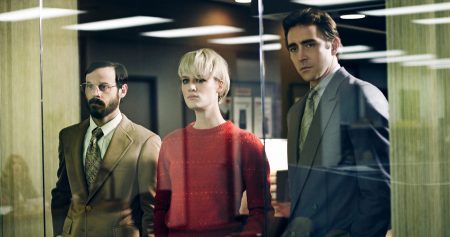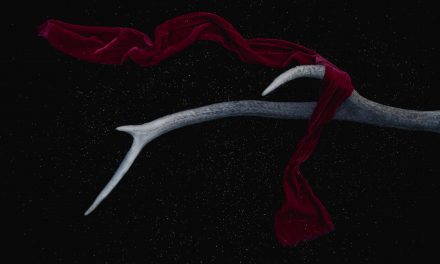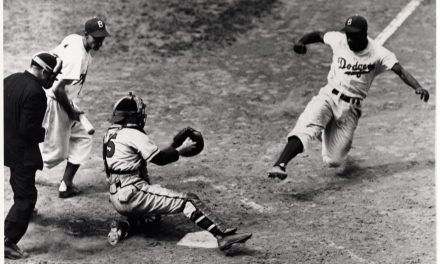Genre/Nostalgia 2021: An online film and television symposium on Wednesday 6 January 2021
Keynote speaker: Dr Kate Egan, Northumbria University: ‘Nostalgia for British Comedy’s Past: Monty Python, the 1960s and 1970s, and Fan Memories.’
Film and TV genres and nostalgia have long been intertwined. Fundamentally, both are rooted in the practice of creatively recycling and adapting modes of the past; Steve Neale’s (1990) assertion that genres are processes of repetition and variation is also applicable to many films and programmes which reimagine historical events, past eras, earlier styles and classic works of literature. Period dramas regularly cite the codes and conventions of past genres as a means of triggering collective memories of an era, while for multiple other film and TV genres, the past is a key component: for instance, science fiction might depict the past as a function of time travel, while the Western is founded on its 19th century American frontier setting, and gothic horror is often associated with Victorian England or based on fin de siècle literature.
Relationships between genre and nostalgia are regularly explored in isolated studies, while broader publications and events often focus on one or the other. However, the focus is rarely on the relationship and interaction between them. This may in part be due to lingering doubts on the value of exploring it. When, in 1991, Fredric Jameson identified what he called ‘the nostalgia film’, he cited genre texts like the neo-noir Chinatown (Roman Polanski, 1974) as evidence of ‘the waning of our historicity’ (1991: 21). In their repetition of previously mediated images, it was, to a large extent, the genericity of films like these which so concerned Jameson and led him to judge them as lacking in historically critical depth. This perspective has to some extent persisted in studies of period and historical dramas, where engagements with the past in popular genres like horror, comedy and science fiction are considered less ‘serious’ or historically significant. Meanwhile, Jameson’s reading of postmodern nostalgia as inherently regressive, despite being subsequently questioned (see, for instance, Hutcheon 2000; Dika 2003), has encouraged some studies to look sceptically on the presence of nostalgia, reading it as a more or less straightforward indicator of longing for a simplified, comforting past rather than as a complex phenomenon.
 Yet, links between genre and nostalgia have only deepened in the increasingly media-saturated 21st century. More genre films and programmes have opted for past settings, and more period dramas, in their style of historical adaptation, have rejected traditional notions of ‘authenticity’ in favour of self-reflexive genericity. As such, this one-day symposium, which we hope will lead to the development of an active research network, seeks to explore connections between film and television genres and nostalgia, memory and other manifestations of the past. The aim is to facilitate dialogue between these two rich and increasingly interconnected areas of study, and to connect scholars at all levels working in these areas.
Yet, links between genre and nostalgia have only deepened in the increasingly media-saturated 21st century. More genre films and programmes have opted for past settings, and more period dramas, in their style of historical adaptation, have rejected traditional notions of ‘authenticity’ in favour of self-reflexive genericity. As such, this one-day symposium, which we hope will lead to the development of an active research network, seeks to explore connections between film and television genres and nostalgia, memory and other manifestations of the past. The aim is to facilitate dialogue between these two rich and increasingly interconnected areas of study, and to connect scholars at all levels working in these areas.
Topics for exploration
Possible areas that may be explored include, but are not limited to:
- Retro style in film and television genres such as comedy, horror, science fiction, the Western, noir, etc., and specific case studies of genre texts engaging with these styles
- Re-appropriations of past genre tropes in period dramas or other generic forms
- Other forms of media, such as books, music videos and video games (e.g. L.A. Noire, 2011), which engage nostalgically with film and television genres
- Foregrounding ignored or marginalised histories (e.g. via new representations of gender/race/class/sexuality) in period genres (e.g. literary adaptations, Westerns)
- Revisiting genre texts on new platforms (e.g. streaming services), and the role of nostalgia in ways of watching (e.g. binge watching, or interactive texts like Black Mirror: Bandersnatch, 2018)
- Nostalgias for genre texts and the nostalgic practices of fans, audiences and/or fan-creators
- Recycle, remake, reboot: nostalgia’s role in genre seriality and multiplicities
- The role of nostalgia in the reappraisal, re-release and/or canonisation of genre texts
- Key genre filmmakers, showrunners, or other creatives engaging with nostalgia (e.g. Greta Gerwig, Ryan Murphy)
- Genre stardom and nostalgia
- The role of nostalgia in genre development, stages, eras and/or cycles
- Genre narratives about nostalgia/memory (e.g. Ready Player One, 2018; 13 Going on 30, 2004, Westworld, 2016-)
- Nostalgia in hybrid genres (e.g. Ashes to Ashes, 2009-2010; Back to the Future, 1985; Ripper Street 2012-2016)
- Rewriting or rethinking historical narratives via genre (e.g. Once Upon A Time…in Hollywood, 2019; Jojo Rabbit, 2019; Chernobyl, 2019)
- The past in the introduction of new generic styles and forms (e.g. steampunk, neo-noir)
- Retro period ambiguity (e.g. It Follows, 2014; The Guest, 2014; Sex Education, 2019-).
Call for papers
We welcome abstracts for standard 15-20 minute conference papers, as well as for alternative forms of presentation (e.g. panel discussions, video essays, posters, extended abstracts, etc.). Please send abstracts of c.200-250 words, along with a short biography and an indication of the presentation format, to the organisers below by Friday 16 October 2020.
Dr Caitlin Shaw (c.shaw3@herts.ac.uk) and Dr Laura Mee (l.mee2@herts.ac.uk)
We anticipate this will be a free event.





